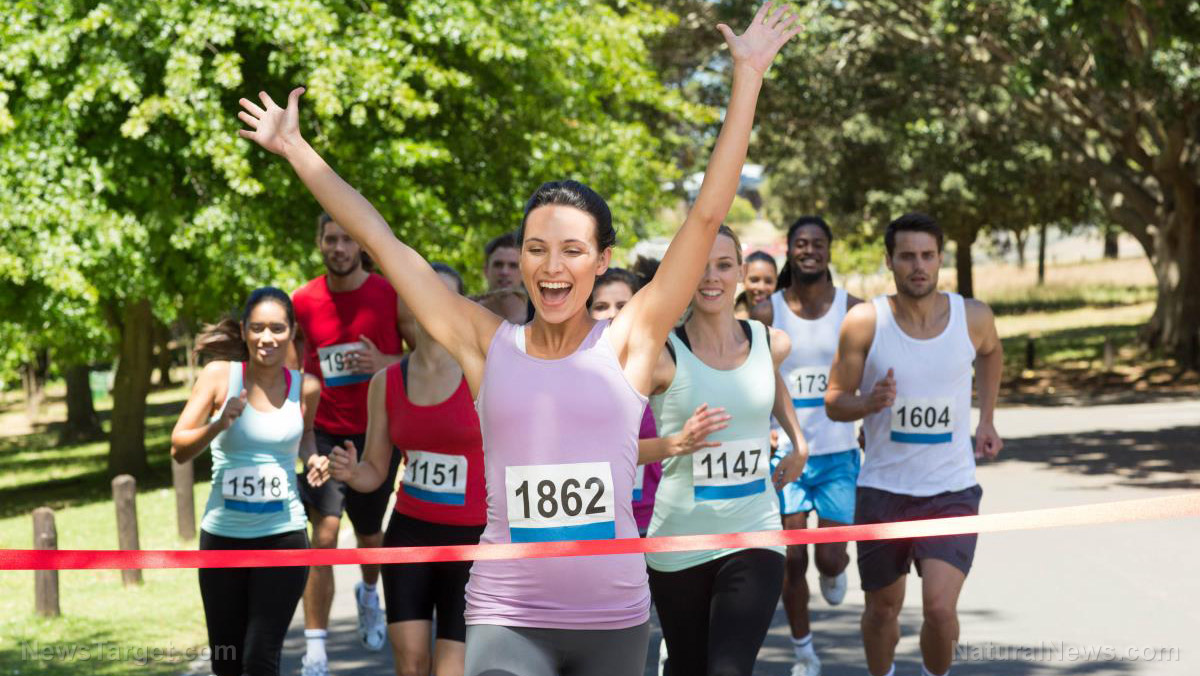Boost creativity with sleep, meditation and exercise
12/27/2017 / By Janine Acero

Artificial intelligence (AI) has progressed rapidly through the years. The concept of “J.A.R.V.I.S.” (Just A Rather Very Intelligent System) from the popular comic book movies is no longer a thing of the imagination. From a personal assistant like Siri to self-driving cars, AI is doing all the thinking for us, which makes it all the more crucial to develop and improve creative thinking.
A researcher offers advice on how to improve creative thinking amid the advent of AI through sleep, meditation, and exercise.
Greg Wells, an assistant professor at the Faculty of Kinesiology and Physical Education at the University of Toronto and a physiologist at Toronto’s Hospital for Sick Children, asserts that meditation, additional hours of sleep, and physical activity such as exercising in nature will significantly improve problem-solving skills.
“If you need to solve a problem or come up with a new creative approach, reducing your sleep hours is the opposite of what your brain needs,” he writes. “Have you ever woken up in the middle of the night and had a ‘Eureka!’ moment – a deep insight? I certainly have; it’s one reason I keep a notebook by my bed. I need to ensure that I capture the insights generated during sleep.”
Creative problem-solving appears to happen during the REM (rapid eye movement) phase of sleep – more commonly called REM sleep – which is a unique phase of sleep in mammals and birds, characterized by rapid movement of the eyes. The sleeper is said to dream more vividly during this phase. It typically occurs in the second half of a night’s sleep if a person is getting the recommended 7.5 hours.
In addition, regular exercise – as little as 15 minutes – can stimulate neurogenesis and improve overall learning and mental performance.
“If you’re wondering what kind of exercise is best for creativity, research suggests that aerobic activities like walking, swimming, cycling, and running are best.”
In fact, one study conducted by researchers at the Center for BrainHealth at the University of Texas at Dallas asserts that aerobic exercise improves the memory and overall brain health of aging adults. Moreover, exercise dramatically increases blood flow to the hippocampus, the region of the brain affected by Alzheimer’s disease.
Lastly, Wells advises adding deliberate mindfulness practice and meditation to your daily routine.
“Think of meditation as strength training for the brain. Just as you would lift weights to build and strengthen your muscles, you can use meditation to build and strengthen your brain and then, also, control and sharpen your mind.”
Meditation helps clear the mind to focus intently on a task, or search for creative inspiration. Studies have been conducted on how meditation practices change brain activity patterns and even brain anatomy.
Foods that boost creativity
Get your creative juices flowing with foods and beverages that enhance creative thinking:
- Avocado – this enhances blood flow and delivers the oxygen needed for your brain cells. Plus it’s a good source of fiber.
- Cold-water fish – salmon and mackerel are some of these fish that are high in Omega-3 fatty acids, which play a valuable role in improving brain power.
- Cruciferous greens – vegetables like broccoli, Brussels sprouts and leafy greens are rich in antioxidants and are known to slow the rate of cognitive decline which is a natural part of aging.
- Dark chocolate – this contains plant metabolites called flavonols that can be found in large quantities in cocoa, which are observed to enhance oxygen flow to the brain.
- Whole grains – brown rice, oats, and barley are some whole grains that are excellent sources of antioxidants and provide glucose that is needed for mental energy.
- Green tea – this contains theanine, a vital amino acid analog which helps improve cognition.
- Coffee – this is another good source of antioxidant compounds. Plus caffeine helps give your brain a short boost in concentration. However, it is advisable to consume caffeine in small amounts only when needed.
For more articles about brain function and health, head over to Brain.news.
Sources include:
Tagged Under: brain function, creativity, creativity boost, exercise, Meditation, mental health, mind-body medicine, sleep




















